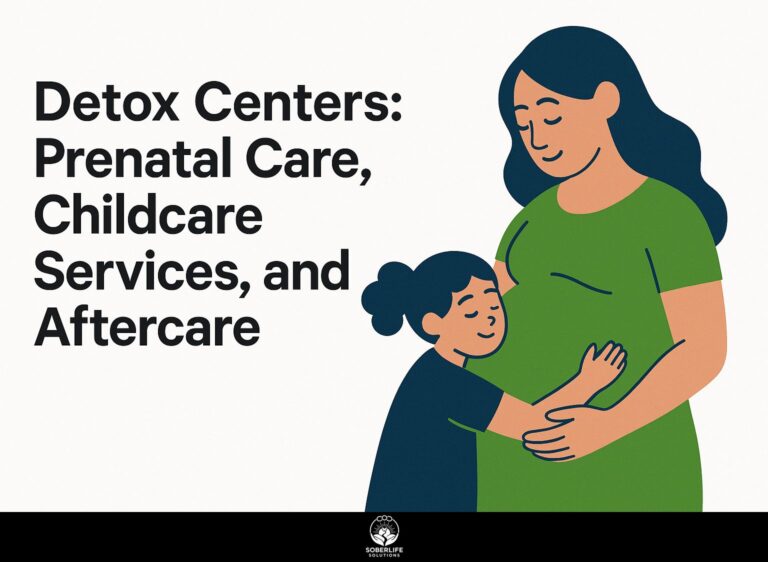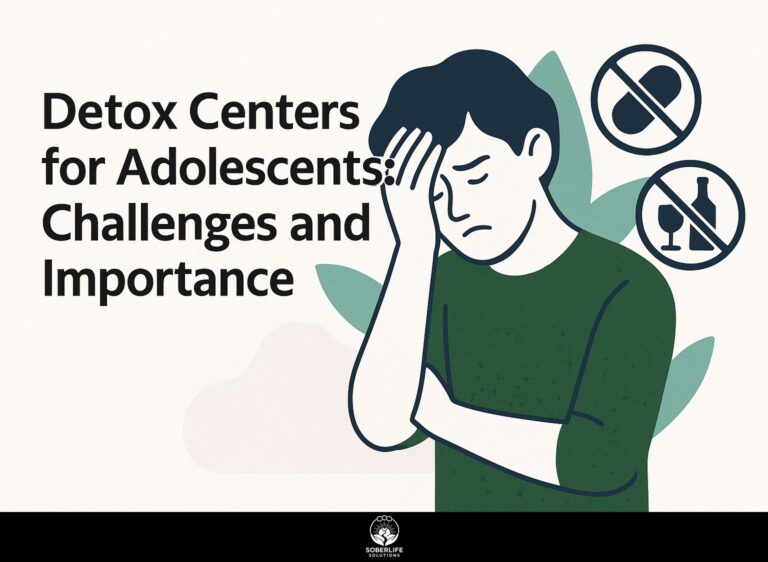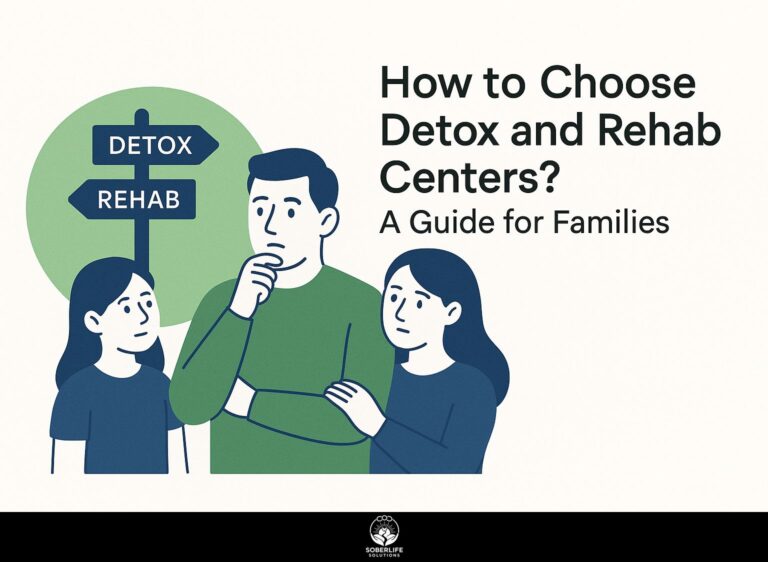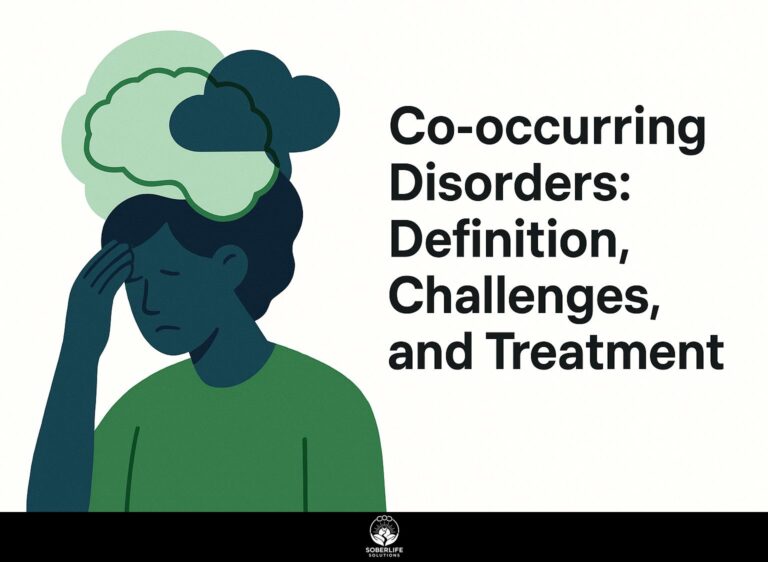Medical Detox: Process and Patient Care
Introduction to Medical Detox
Dealing with substance dependence, especially during alcohol withdrawal and drug addiction, starts with a key step: medical detox. At The Recovery Village, we know that detox is not just about removing substances from the body; it is an essential part of effective treatment. In this article, we will explain the stages of medical detox, highlighting patient care and the support required for a successful recovery.
Key Takeaways:
Definition and Importance
Medical detox is a supervised process that helps individuals stop using drugs or alcohol safely while they receive the medical support they need.
Typically, this process involves a thorough assessment by healthcare professionals who tailor a detox plan based on individual needs.
For example, medications like methadone or buprenorphine can alleviate opioid withdrawal symptoms, while benzodiazepines may be used for alcohol detox to reduce seizures.
Ongoing monitoring helps to quickly handle any issues that arise. Participating in group therapy or counseling during detox offers emotional support and helps build a sense of community that is important for recovery.
This combination of medical and psychological care is essential for a safe and effective detox experience.
Goals of Medical Detox
The primary goals of medical detox include ensuring patient safety, alleviating withdrawal symptoms, and preparing individuals for long-term recovery efforts.
To reach these goals, facilities often follow a clear detox plan that involves individual medical evaluations, help with medications, and mental health support.
For example, gradually reducing medication, like buprenorphine for opioid withdrawal, can greatly lessen symptoms. Weekly therapy sessions can help tackle underlying emotional problems and strengthen the desire to recover.
Including practices such as yoga or meditation can improve emotional health.
By using these methods, detox programs help make the shift to continued rehabilitation safer and more effective.
Understanding Substance Use Disorders
Knowing about substance use disorders (SUD) is important for successful treatment and includes different types of substances like alcohol, opioids, and benzodiazepines. For those looking to understand various treatment pathways, our substance abuse treatment resources offer comprehensive insights into available services, options, and eligibility criteria.
Types of Substances
Substance use disorders can stem from various substances, including alcohol, prescription opioids, and illicit drugs, each presenting unique challenges.
Alcohol can lead to chronic health issues, impairing judgment and increasing the risk of accidents and violence.
Prescription opioids, such as OxyContin, can effectively reduce pain but may lead to dependency quickly because of the feelings of pleasure they produce. Likewise, benzodiazepines like Xanax are often given for anxiety but can cause serious withdrawal symptoms if used improperly.
Knowing how these substances affect people is important for creating effective treatment plans, which can involve therapy, support groups, or medication to help with recovery.
Signs and Symptoms of Addiction
Noticing the signs of addiction is important for getting help quickly and creating a successful treatment plan.
Common behavioral symptoms of addiction include neglecting responsibilities, such as missing work or school, and withdrawing from social activities.
Physical signs often manifest as dramatic mood changes, where individuals may experience sudden irritability or depression. Withdrawal symptoms like nausea, sweating, or tremors can be evident.
To properly assess addiction, use specific tools like the DSM-5 criteria or the Addiction Severity Index (ASI). According to a detailed overview from Verywell Mind, these tools help identify a person’s situation and needs, which leads to improved support and treatment.
The Medical Detox Process
The medical detox process includes important steps that help patients safely manage withdrawal and get ready for further treatment. For a deeper understanding of various detox services and their effectiveness, you can explore our guide on detox services.
Assessment and Evaluation
The detox process starts with a detailed check-up and evaluation by healthcare experts to customize treatment for each person.
This first assessment should involve a thorough discussion to gather information about the patient’s substance use, medical background, and lifestyle.
A physical exam is important to find any health problems that could affect the detox process. Evaluating mental health can help deal with psychological dependencies. For instance, using tools like the DSM-5 for psychiatric assessments can offer information about related disorders.
These elements combine to create a customized detox plan, leading to better and safer results.
Detoxification Methods
Detox methods can differ greatly depending on the substance. Medication is often used to help people handle the symptoms of opioid withdrawal.
- One common method involves tapering schedules, where individuals gradually reduce their substance intake to minimize withdrawal effects.
- Medications such as Suboxone can help reduce cravings and control symptoms during detox.
- Practices like yoga and meditation can help with emotions and reduce stress.
Talking with addiction experts is essential; they can give specific advice during detox, recommending the best treatments for each person’s needs, which increases the chances of a successful recovery.
Duration of Detox
The detox process can take from a few days to a few weeks, based on the substance involved and how strong the dependence is.
For instance, alcohol detox typically lasts between 3 to 10 days, while opioid detox can extend from 7 to 14 days. These timeframes influence treatment planning significantly.
For people detoxing from alcohol, withdrawal symptoms can start between 6 to 24 hours and may include anxiety and shaking. In contrast, those detoxing from opioids typically experience flu-like symptoms, which tend to peak about 72 hours after they stop using.
Knowing these timelines helps healthcare workers plan their support methods, making sure that the recovery process is safe and effective.
Patient Care During Detox
Providing thorough care for patients during detox is essential for managing withdrawal symptoms and giving the necessary support for recovery. To ensure effective treatment, understanding the various aspects of detox is crucial, particularly when considering the social detox process and its benefits.
Monitoring and Support
Regular checks and assistance are essential during detox to keep patients safe and handle any health problems that may arise.
Healthcare workers monitor vital signs and mental health using different techniques. Nurses typically check heart rate, blood pressure, and temperature, while trained therapists conduct mental health evaluations.
Using telehealth tools like Doxy.me keeps communication open between appointments, ensuring patients remain in touch. Wearable devices, such as smartwatches, allow for ongoing tracking of vital signs and alert users to any concerning changes.
This system improves safety and creates a helpful environment during detox.
Managing Withdrawal Symptoms
Effectively handling withdrawal symptoms is important to avoid problems and support a successful detox process.
Utilizing medications such as Naltrexone can significantly ease alcohol withdrawal symptoms by reducing cravings and alleviating discomfort. According to the FDA, medications for opioid use disorder can also play a crucial role in managing withdrawal symptoms.
Using this alongside behavioral therapies, such as cognitive-behavioral therapy or motivational interviewing, can create a supportive space where people feel heard and inspired.
Using support methods like drinking enough water, eating well, and practicing mindfulness also helps manage symptoms.
Creating a routine that includes exercise and support from others can strengthen recovery. It’s important for people in detox to find caring and thorough help during this time.
Aftercare and Recovery Planning
Aftercare and recovery planning are important parts of detox, helping individuals have strong support as they move towards lasting recovery. Strategies for effective aftercare can significantly enhance the recovery process, as outlined in our guide on detox centers, which emphasize aftercare services.
Importance of Continued Support
Continued support after detox helps people maintain their recovery and cope with challenges in the future.
Recovery advocates are important because they provide personalized support and help individuals remain responsible throughout their recovery journey.
Joining support groups, like 12-step programs, builds a community and shared experiences that can be important for emotional strength.
Participating in ongoing therapy-whether cognitive behavioral therapy (CBT) or mindfulness practices-ranges from weekly sessions to monthly check-ins, allowing individuals to develop coping strategies for triggers that may arise. According to a recent publication in the journal Addiction Research & Theory, these approaches are crucial for relapse prevention.
Regular follow-ups and adjustments in care can effectively sustain motivation and prevent relapse.
Resources for Ongoing Care
Many options exist for continuing care, such as detox centers, outpatient programs, and facilities offering behavioral health support.
Treatment centers such as The Recovery Village provide thorough programs that include medical detox and therapy sessions, supporting individuals as they recover.
Plus these facilities, local support groups such as Alcoholics Anonymous (AA) and Narcotics Anonymous (NA) provide community-based support and accountability.
Using online tools such as SAMHSA’s treatment locator can help people find local support that fits their needs.
Combining professional assistance with support from others provides a complete approach for lasting recovery, ensuring that individuals have access to various resources and opinions.
Summary of Key Points
This article highlighted the essential aspects of medical detox, including its definition, goals, and the importance of a structured recovery plan.
After detox, it is important to support the patient. This support can include therapy sessions to address underlying issues, which may involve groups like Alcoholics Anonymous or individual counseling.
Aftercare is important for stopping relapse. Using services like sober living homes or outpatient programs can greatly improve long-term success. Studies indicate that having a structured aftercare plan cuts the risk of relapse by more than 50%, highlighting its key importance in achieving lasting health and stability.
An effective aftercare plan provides people with the tools and support they need when returning to their daily routines.
Frequently Asked Questions
What is the Medical Detox process?
The Medical Detox process is a supervised treatment designed to help individuals safely withdraw from substances, such as drugs or alcohol. It often involves medical evaluation, monitoring, and the use of medications to manage withdrawal symptoms and cravings, ensuring the patient’s safety and comfort throughout the procedure.
How long does the Medical Detox process typically take?
The length of the Medical Detox process can differ widely depending on several factors, such as the substance being withdrawn from, how long it has been used, and the person’s general health. Typically, detox lasts from a few days to a week, but some situations may need longer monitoring and support.
What role does patient care play during Medical Detox?
Patient care during Medical Detox is essential for a successful treatment. Healthcare workers offer support through regular check-ups, medical help, counseling, and emotional care. This assists patients in managing withdrawal symptoms and taking care of any health issues that come up.
Are there risks associated with the Medical Detox process?
Yes, there are risks with the Medical Detox process, including serious withdrawal symptoms that can be dangerous or even fatal. This is why having professional supervision is important; medical staff can step in quickly if complications occur, keeping patients safe during detox.
What should patients expect during their Medical Detox stay?
Patients can expect a structured environment during their Medical Detox stay, including medical assessments, individualized treatment plans, and various therapies. They will also likely receive education about addiction and recovery, as well as support from healthcare providers to help them prepare for ongoing treatment after detox.
Is Medical Detox the same as rehabilitation?
No, Medical Detox is not the same as rehabilitation. While detox focuses on safely managing withdrawal symptoms and helping patients clear substances from their system, rehabilitation goes further by providing therapy, counseling, and support to address the psychological aspects of addiction. Medical Detox is often the first step before entering a rehabilitation program.






